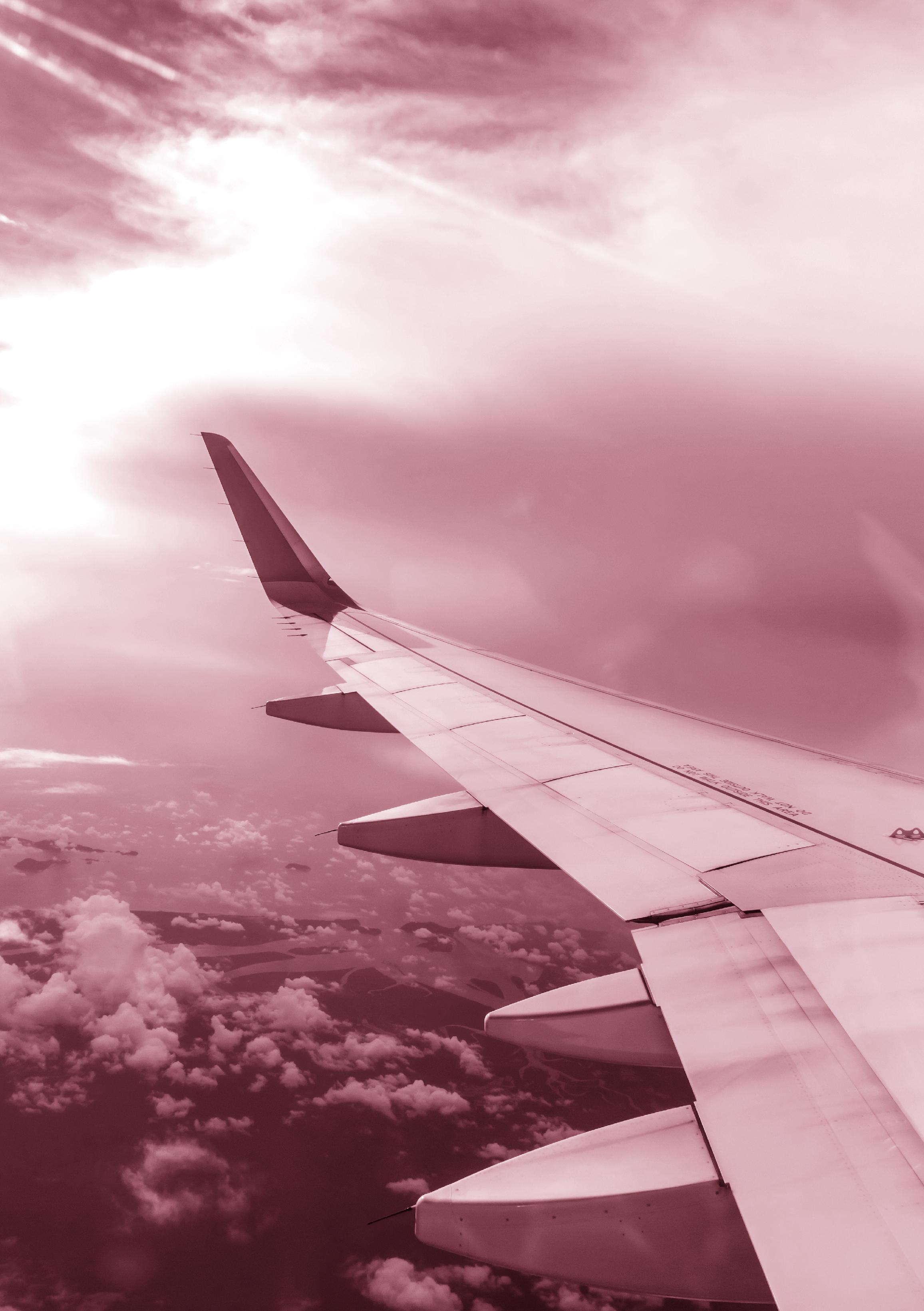

How to Australia to New Zealand.



Introduction:
If you’re thinking of exporting your franchise system, New Zealand is the obvious place to start. It’s nearby, speaks (almost) the same language, and has many supply chains in common. Most Kiwis are familiar with Australian brands already and are highly receptive to franchises – in fact, New Zealand is the most franchised country in the world.
However, Australian franchises need to be aware of some key differences. These include demographics, local competition, brand positioning, regional variation, pricing and labour markets, support requirements, recruitment and marketing, and so on. All of these will impact their business model.
I’ve worked with many Australian franchises coming to New Zealand over the last 30 years. Some have been a huge success, while others have never realised their potential. What makes the difference? In this eBook from Eden Exchange, the new owners of Franchise New Zealand media, we’ll explain some of the key things to look out for and point you to more resources to help.

What You’ll get out of this
This eBook is designed to provide you with information on how to expand your franchise from the Australian market internationally to the New Zealand Market.
eBook
Collecting information from Eden Exchange’s team and the reliable and trusted articles from Eden Exchange’s new acquisition, Franchise New Zealand, this eBook is prepared to help you with expert opinions from both the Australian and New Zealand franchising sectors.


New Zealanders are a resourceful, independent lot. It was a New Zealander who first climbed Mt Everest (Sir Edmund Hillary) and who split the atom (Ernest Rutherford), and New Zealand was the first country in the world to give the vote to women (1897).
Small wonder, then, that such a good idea as franchising has taken hold in a big way. According to the 2021 Franchising New Zealand survey by Massey
University, the population of 5.1 million is served by around 590 franchise brands with 32,500 franchised units, giving it the highest proportion of franchises per capita in the world. Over 70% of these systems are locally-bred, but New Zealanders have also given a warm welcome to appropriate franchise systems from all over the world such as Anytime Fitness, EmbroidMe, Jani-King, The Coffee Club and, of course, McDonald’s.

Business conditions
New Zealand is a country about 10% larger in area than the United Kingdom and 25% smaller than Japan. It is situated 1200 miles/1920 kilometres to the east of Australia. Settled by the Maori people almost 1000 years ago, it was colonised in the nineteenth century by the British who valued its rich agricultural land and forests. The country is divided into two major islands, the North Island (which is home to the majority of the population) and the South Island. There are also many smaller islands. The landscape varies from subtropical in the north to alpine, and the total coastline is equivalent to that of the entire mainland United States. Agriculture and tourism are New Zealand’s two biggest industries, and the country has also established a reputation for fine wines and sporting excellence.
The country has a sophisticated economy heavily dependent on export trade. A consistent policy of deregulation has made it one of the best climates in the world in which to do business, according to international surveys*. The government has focused on creating a ‘level playing field’ to allow competition between companies to be on an equal footing. In keeping with this policy, there is currently no specific franchise legislation, although franchise relationships
are, of course, governed by normal commercial law. This contrasts with the position in neighbouring Australia, which introduced regulation in 1998 and has been amending it ever since to make it even more stringent.
The New Zealand economy performed extremely well following the painful market reforms of the 1980’s, and the country’s credit ratings have always been high. The country has followed a pro-trade economic path in recent years with the abolition of tariff barriers and free trade agreements with Australia, China, Chile, the European Union and the UK, Korea, Malaysia, Singapore, Thailand and others. However, as a small country with an export-led economy, the strength of the NZ dollar is always at the mercy of outside forces, and tends to fluctuate against major trading partners more than most.
Today, despite the inevitable global and national impacts following COVID-19, the country’s economy has continued to perform remarkably well in many areas. Although it is currently facing the same inflation, employment, and cost-of-living issues as many other Western economies, these are expected to improve in 2025

Attitudes Towards Franchising
Franchising only really became established in New Zealand during the 1990s. Although there were several of the major overseas franchises, and some locally-developed ones, operating here before that time, franchising was not really seen as an acceptable way to go into business by many. A couple of high-profile franchise failures in the 1980’s had helped to make franchising a dirty word.
However, franchising has flourished since and, as the 2021 Survey confirmed, New Zealand is now the most franchised country in the world on a per capita basis. It has a good mix of overseas and local, mature and new franchise opportunities being offered. In general terms, the public (and legal and financial advisors) are now far better informed about franchising and therefore able to make better decisions when selecting opportunities.
Legislation
There is no specific legislation relating to franchising in New Zealand, as the sale of businesses and business practices is covered by normal commercial law. Of particular importance to incoming systems are the Fair Trading Act, Health & Safety in Employment Act, Consumer Guarantees Act and the Employment Act.
The self-regulatory Code of Practice introduced in 1996 by the Franchise Association of New Zealand contains many provisions similar to those of the Australian Franchising Code of Practice legislation, and incoming franchisors would be well-advised to acquaint themselves with its provisions.
If a franchise is compliant with the Code in Australia and applies the same standards in New Zealand, it has nothing to fear from New Zealand legislation. However, Australian franchise agreements and other documentation such as employment contracts should be amended by New Zealand-based advisors to ensure compliance with New Zealand law.




The Franchise Association of New Zealand
The Franchise Association of New Zealand exists to promote franchising and to help and encourage franchisors and franchisees alike to achieve high standards of performance and excellence.
The Association has around 220 members including both New Zealand-based and overseas systems. Around a third of members are lawyers, accountants and other specialists who are welcome to meet, share information, solve problems and develop new ideas at meetings around the country and at an annual conference. Members are required to abide by a Code of Practice which sets minimum standards for franchising.
The Association also promotes the New Zealand Franchise Awards. The Westpac New Zealand Franchise Awards are judged to rigorous standards and have helped confirm NZ’s best franchises and specialist service providers operate at the highest international level.
Franchise New Zealand media, owned by Eden Exchange, is a two-time winner of the Service Provider of the Year Award (2021 and 2022).


Tips To Get a Franchise Up and Running In New Zealand
There are a lot of different things to consider when deciding to expand your franchise to an international scale. A different market provides different opportunities, allowing you to expand your business to reach people that you weren’t able to do on a national scale.
New Zealanders are very receptive to franchises, so it’s a perfect opportunity for you as a franchisor to find franchisees who accurately represent the country you’re expanding into while still retaining your brand’s core values.
New Zealand also provides a great launching pad to test your business model in a new country. It allows you to explore how best to expand your franchisee closer to home before making the big leap elsewhere, if that’s what you desire.
But no matter how good your franchise system might be at home in Australia, exporting it into a new market with new tastes, laws, and competitors is not a simple process. Here are our ‘seven deadly sins’ of franchise exporting.

The Seven Deadly Sins
1. Franchisors fail to research their planned market sufficiently thoroughly, or leave it to an inexperienced local master franchisee to do so. The result is frequently failure or, at least, a much slower start than otherwise possible.
2. Franchisors and local masters fail to use local experts to create a proper entry plan. Employing a local lawyer to convert the franchise agreement into something compliant with local law is not enough. A full entry plan must address not just legal and financial issues but structural, territorial and other matters.
3. People make assumptions that where things aren’t obviously different, they must be the same. For example, one overseas café franchise snapped up a site near an Auckland suburban station without bothering to check how many people actually use the trains. Their rivals were in stitches.
4. Franchisors fail to check out the market positioning of local brands. The niche occupied by the franchise in its own country may already have been filled - or may not even exist - in another. In the mid-1990s, several Australian home services companies entered the New Zealand market only to find that the number one spot was already filled by Green Acres and Crewcut - two brands that didn’t even exist in their home country.
5. Franchisors and local masters fail to adjust marketing to local conditions. This problem is often worse, not better, when franchises move between English-speaking countries. ‘ Australian-made’ is not a big selling point in New Zealand. Acknowledging Te Reo (the Māori language) is. If New Zealand and Australia spoke different languages, companies moving between them would take more care adjusting to local conditions.
6. Franchisors appoint an inexperienced or underfunded master franchisee or partner and then fail to provide them with the specialist training they will need to replicate the franchisor’s business in another country. Too many franchises do little more than put national master franchisees through ordinary franchisee training, which does not equip them for the multiple roles required of a franchisor.
7. And the cardinal sin: franchisors or master franchisees fail to set up a pilot operation to test market acceptability and supply lines over a reasonable period before appointing franchisees. The responsibility for making a format work should be taken by the master franchisor or franchisee, not by individual unit franchisees.
Remember this: buying or selling a master franchise in another country is no guarantee of success. It’s only once multiple outlets are up and thriving that you can pat yourself on the back and say “this is a workable international franchise”.



Franchising Is Not Just For Franchisors
Finally, while the idea of franchising overseas is likely to appeal to companies that have already franchised within their own country, it should also appeal to non-franchised companies. Franchising offers all sorts of businesses the opportunity to exploit their intellectual capital by leveraging their know-how or business knowledge in other markets.
Franchising enables you to work with a dedicated company committed to your brand’s best interests on the ground in the target country. They will have invested not only a great deal of time in your business but will also have paid an upfront fee to you and will have committed to an establishment investment and continuing ongoing royalties. These investments are considerable so they will be paying full attention and working hard to make your brand a success.

Thrived
Looking to make the leap to New Zealand, having successfully franchised in Australia? You’re not the first franchise network that’s looked to make the jump. Bakers Delight, Jim’s Mowing, Muffin Break, The Touch Up Guys and many more testify to the fact that many franchises have crossed the Tasman with enormous success, and that many Kiwi franchisees have shared in that success.
Bakers Delight
Baker’s Delight was founded by fourth generation baker and current CEOs Roger and Lesley Gillespie, together with Gary Stephenson, in Australia back in 1980. Bakers Delight arrived in Auckland in 1995 and has since delighted customers across New Zealand for nearly 30 years.
Since arriving in Auckland our strong and trusted brand with its distinctive image has fostered a loyal customer base in local communities around New Zealand. With Bakers Delight New Zealand becoming Kiwi-owned in 2022, the franchise is in an exciting chapter of growth and opportunities.
Jim’s Mowing
Jim’s Mowing began in 1982 as a one-man business in 1982, created by Jim Penman. With a dedication to customer service, the Jim’s Mowing Franchise system was established in 1989. Jim’s Mowing was established in New Zealand in 1994 and has grown and become a leader in lawn mowing and garden services by recruiting quality franchisees.


Muffin Break
From a little Canadian shop trying to make a name for itself back in the 1980s to what you see today, over the last 20+ years Muffin Break New Zealand has been passionately doing what it does best – giving people a place to enjoy fresh coffee, delicious food and great service with friends.
Muffin Break New Zealand began in 1994 with their first cafe in Auckland. It was there where it refined its range to include a local twist. Since then Muffin Break New Zealand’s famous award-winning signature blend coffee, and freshly baked and prepared range can now be found right across New Zealand. Their overseas footprint continues to grow in Australia and the United Kingdom, taking our total store count over 300 internationally.
The Coffee Club
From a single store which opened in November 1989 at Brisbane’s Eagle Street Pier, to more than 250 cafes throughout Australia, 65 in New Zealand, 40 in Thailand, 30 in the UAE, and cafes in Maldives, Indonesia, Cambodia, Vietnam and China, The Coffee Club has established itself as an iconic household name and preferred venue for millions of coffee drinkers throughout the Asia Pacific region. They now employ more than 6,000 employees and serve more than 40 million coffees annually in our 400 plus cafes globally.
The Coffee Club New Zealand has a strong presence in Auckland, but you’ll also find their cafes in many regional areas including Hamilton, Tauranga, Hastings, Palmerston North, Wellington, Christchurch, Dunedin, Queenstown, Invercargill, Taupo, Rotorua, Warkworth and Cambridge.


Exchange’s Franchising Team
Throughout this eBook, we have highlighted what you need to know about franchising in New Zealand. This should serve as a guide to how to make the transition to franchising across the pond with a better understanding of what the franchise market is like in New Zealand at the moment. Not only that, but you should now be in a better position to evaluate your franchise and determine if New Zealand could be the logical next destination for you.
It’s important to understand what makes a franchise truly great, and how you can ensure you’re able to thrive in an increasingly competitive market. Eden Exchange has helped franchise networks of all shapes and sizes thrive. Partnering with Eden Exchange can help you make your mark in both the Australian and New Zealand franchise markets, with our award-winning business across the Tasman able to help provide the information and contacts you need.
Our extensive network of potential franchisees, expert guidance, and efficient deal-making process have proven to be essential to franchise networks meeting and exceeding their growth targets. Whether you’re at the beginning stages as a franchisor or seeking to expand your franchise network, a partnership with Eden Exchange can help you triumph.
Ready to take the leap? With the help of Eden Exchange and Franchise New Zealand, we’re wellequipped with resources and experts to help determine what the best course of action is for your franchise and how to make the most of your growth.
For expert advice and stories of successful franchises who have flourished in New Zealand, check out Franchise New Zealand’s website, where you can learn about franchising in New Zealand and get specialised advice as an Australian franchisor looking to expand into the NZ market.

Our


